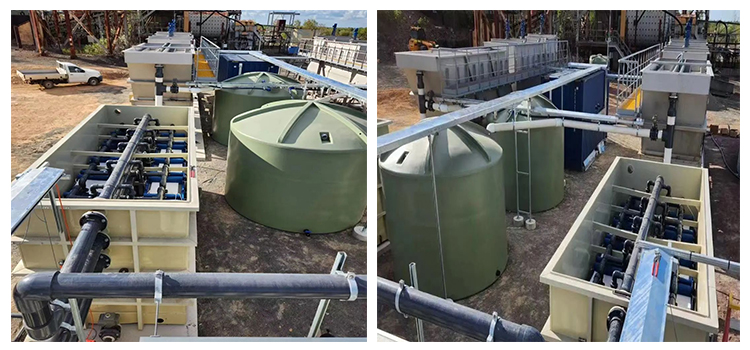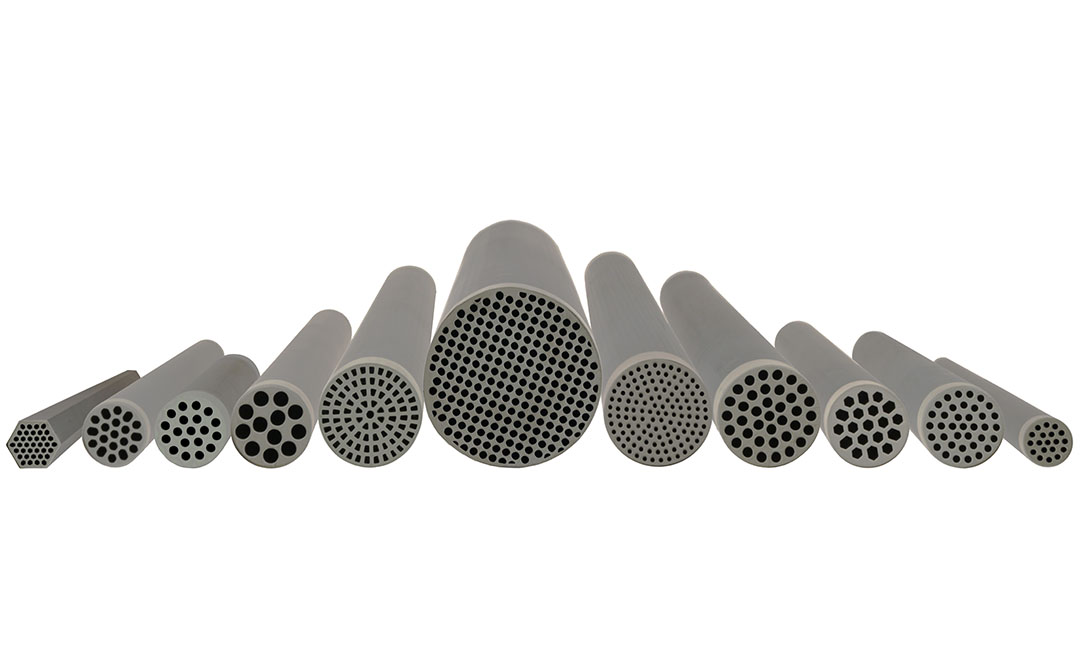Benefits of Using Silicon Carbide Water Membranes in Filtration
Silicon carbide water membranes have gained significant attention in recent years due to their efficiency in water filtration processes. These membranes are made from a combination of silicon and carbon atoms, resulting in a material that is extremely durable and resistant to harsh chemicals and high temperatures. This makes them ideal for use in water filtration systems where the removal of contaminants is crucial.
One of the key benefits of using silicon carbide water membranes is their high filtration efficiency. These membranes are capable of removing a wide range of contaminants, including bacteria, viruses, and heavy metals, with a high degree of precision. This ensures that the water produced is of high quality and safe for consumption. Additionally, silicon carbide membranes have a long lifespan, which means that they can be used for extended periods without needing to be replaced, reducing maintenance costs and downtime.
Another advantage of silicon carbide water membranes is their resistance to fouling. Fouling occurs when contaminants build up on the surface of the membrane, reducing its effectiveness and requiring frequent cleaning or replacement. Silicon carbide membranes are less prone to fouling compared to other types of membranes, thanks to their smooth surface and high chemical resistance. This results in lower operating costs and increased efficiency in water filtration processes.
In addition to their high filtration efficiency and resistance to fouling, silicon carbide water membranes are also environmentally friendly. These membranes are made from natural materials and can be recycled at the end of their lifespan, reducing waste and minimizing the environmental impact of water filtration processes. Furthermore, the use of silicon carbide membranes can help to reduce the consumption of chemicals and energy in water treatment, making them a sustainable choice for water filtration applications.
Silicon carbide water membranes are also highly versatile and can be used in a wide range of water treatment applications. Whether it is for desalination, wastewater treatment, or industrial processes, these membranes can effectively remove contaminants and produce clean, safe water. Their durability and resistance to harsh conditions make them suitable for use in challenging environments, where other types of membranes may fail.
Overall, the efficiency of silicon carbide water membranes in filtration makes them a valuable asset in water treatment processes. Their high filtration efficiency, resistance to fouling, environmental friendliness, and versatility make them an ideal choice for a wide range of applications. By using silicon carbide membranes, water treatment plants can improve the quality of their output, reduce operating costs, and minimize their environmental impact. As technology continues to advance, silicon carbide water membranes are likely to play an increasingly important role in ensuring access to clean and safe water for communities around the world.
Comparison of Silicon Carbide Water Membranes with Traditional Filtration Methods
Water scarcity is a pressing issue that affects millions of people around the world. As the demand for clean water continues to rise, the need for efficient water filtration methods becomes increasingly important. Silicon carbide water membranes have emerged as a promising technology that offers significant advantages over traditional filtration methods.
One of the key benefits of silicon carbide water membranes is their high efficiency in removing contaminants from water. These membranes are made from a material that is extremely hard and durable, allowing them to effectively filter out even the smallest particles. In comparison, traditional filtration methods such as sand or carbon filters may not be as effective in removing all types of contaminants.
Another advantage of silicon carbide water membranes is their long lifespan. These membranes are designed to be highly resistant to fouling, which can extend their operational life significantly. In contrast, traditional filtration methods may require more frequent maintenance and replacement, leading to higher costs and downtime.
In terms of energy efficiency, silicon carbide water membranes also outperform traditional filtration methods. These membranes require less energy to operate, making them a more sustainable option for water treatment facilities. Additionally, the high efficiency of silicon carbide membranes means that less water is wasted during the filtration process, further reducing energy consumption.

Silicon carbide water membranes are also more compact and lightweight than traditional filtration methods. This makes them easier to install and transport, making them a more versatile option for a variety of applications. In addition, the smaller footprint of silicon carbide membranes can help to save space in water treatment facilities, allowing for more efficient use of resources.
Despite these advantages, it is important to note that silicon carbide water membranes may not be suitable for all water treatment applications. In some cases, traditional filtration methods may still be more cost-effective or better suited to specific water quality requirements. It is important for water treatment professionals to carefully consider the specific needs of their facility before deciding on the best filtration method to use.
In conclusion, silicon carbide water membranes offer a number of advantages over traditional filtration methods in terms of efficiency, durability, and sustainability. These membranes are highly effective at removing contaminants from water, have a long lifespan, and require less energy to operate. While they may not be suitable for every application, silicon carbide membranes are a promising technology that can help to address the growing demand for clean water around the world. By exploring the efficiency of silicon carbide water membranes in filtration, water treatment professionals can make informed decisions about the best filtration methods to use in their facilities.
Case Studies Demonstrating the Efficiency of Silicon Carbide Water Membranes
Silicon carbide water membranes have gained significant attention in recent years due to their high efficiency in water filtration. These membranes are made from a combination of silicon and carbon atoms, resulting in a material that is extremely durable and resistant to corrosion. In this article, we will explore several case studies that demonstrate the efficiency of silicon carbide water membranes in various filtration applications.

One of the key advantages of silicon carbide water membranes is their ability to effectively remove contaminants from water. In a study conducted by researchers at the University of California, Berkeley, silicon carbide membranes were found to be highly effective in removing organic compounds, heavy metals, and bacteria from water sources. The researchers observed a significant reduction in the levels of contaminants after passing water through the silicon carbide membranes, highlighting their efficiency in water purification.
Another case study conducted by a team of researchers at the Massachusetts Institute of Technology focused on the use of silicon carbide membranes in desalination processes. Desalination is a critical process for producing fresh water from seawater, but traditional desalination methods can be energy-intensive and costly. The researchers found that silicon carbide membranes were able to effectively remove salt and other impurities from seawater, resulting in a more efficient and cost-effective desalination process.
In a separate study conducted by a team of researchers in Japan, silicon carbide membranes were used in wastewater treatment plants to remove pollutants and improve water quality. The researchers found that the silicon carbide membranes were able to effectively filter out contaminants such as heavy metals, organic compounds, and microorganisms, resulting in cleaner and safer water for reuse or discharge into the environment.
Overall, these case studies demonstrate the efficiency of silicon carbide water membranes in a variety of filtration applications. The unique properties of silicon carbide, including its high strength, chemical resistance, and thermal stability, make it an ideal material for water filtration membranes. By using silicon carbide membranes, researchers and engineers can achieve higher levels of water purity and quality while reducing energy consumption and costs associated with traditional filtration methods.
In conclusion, silicon carbide water membranes have proven to be highly efficient in various filtration applications, including water purification, desalination, and wastewater treatment. The unique properties of silicon carbide make it an ideal material for membrane filtration, allowing for the removal of contaminants and impurities from water sources. As the demand for clean and safe water continues to grow, silicon carbide membranes offer a sustainable and cost-effective solution for meeting the world’s water filtration needs.

